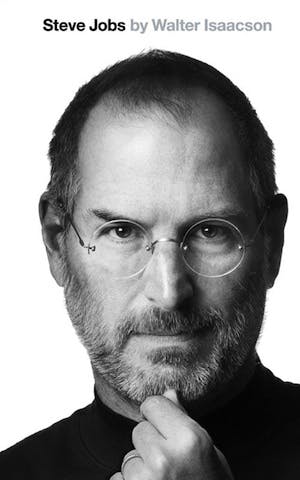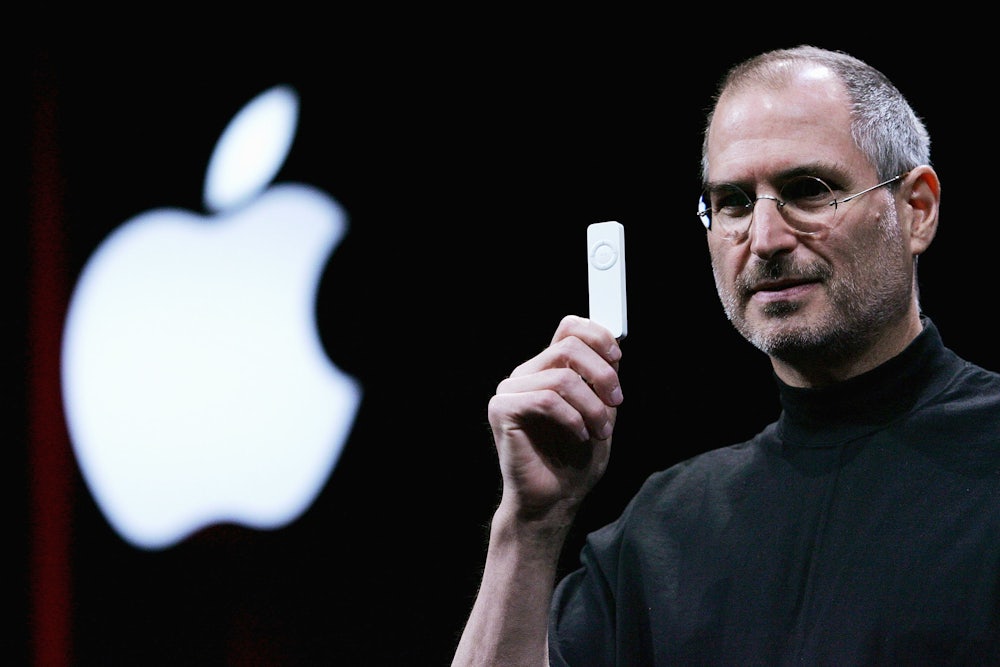“He is book smart.” “She has people smarts.” “He isn’t intellectually intelligent.” “She has no emotional intelligence.” These phrases are all familiar because, as observers of other people, most of us do our best to define brain type as well as brain power. Particular varieties of intelligence are easy to recognize and difficult to precisely explain. In The New York Times, Walter Isaacson, whose Steve Jobs biography has been garnering significant attention, does his best to delineate what he calls, “The Genius of Jobs.” His piece is an excellent example of how hard a task this is.

Isaacson begins with a story about Jobs and his family sitting around the kitchen table as Jobs struggles with a brain-teaser. Isaacson makes the point that Bill Gates would have applied some clean logic to the problem, and effortlessly come up with a solution. And yet, as Isaacson notes, “Mr. Gates never made the iPod. Instead, he made the Zune.” (For clueless readers like myself, the Zune is one of Microsoft’s digital media product lines). Isaacson goes on to say that Jobs was not conventionally smart, but was instead a genius whose imaginative leaps were “sparked by intuition, not analytical rigor.” Moreover:
[Jobs] told me he began to appreciate the power of intuition, in contrast to what he called “Western rational thought,” when he wandered around India after dropping out of college. “The people in the Indian countryside don’t use their intellect like we do,” he said. “They use their intuition instead ... Intuition is a very powerful thing, more powerful than intellect, in my opinion. That’s had a big impact on my work.”
Isaacson lets pass this absurd statement as if it contained real truth and insight. Instead, it reads like the most clichéd and hackneyed evaluations of Indian thinking going back hundreds of years and often appearing in concert with a “deep” interest in “eastern” spirituality (this being true, not surprisingly, in Jobs’s case). It is hard to say what’s sillier: the idea that Indian farmers trying to feed their families don’t use “rational thought” to calculate, say, crop yields, or the unstated implication that not doing so would be beneficial.
No matter: this still raises the elusive question of what separates intuition from “rational thought” or “analytical rigor.” Isaacson writes:
Mr. Jobs’s intuition was based not on conventional learning but on experiential wisdom. He also had a lot of imagination and knew how to apply it. As Einstein said, “Imagination is more important than knowledge.”
If imagination is more important than knowledge, what is experiential wisdom? Does it not confer knowledge? And if so, what is Isaacson trying to say? He goes on to claim that one of Jobs’s predecessors was Benjamin Franklin, who also had Jobs’s unique intuitive genius.
Among the founders, Franklin was not the most profound thinker — that distinction goes to Jefferson or Madison or Hamilton. But he was ingenious. This depended, in part, on his ability to intuit the relationships between different things. When he invented the battery, he experimented with it to produce sparks that he and his friends used to kill a turkey for their end of season feast. In his journal, he recorded all the similarities between such sparks and lightning during a thunderstorm, then declared “Let the experiment be made.” So he flew a kite in the rain, drew electricity from the heavens, and ended up inventing the lightning rod. Like Mr. Jobs, Franklin enjoyed the concept of applied creativity — taking clever ideas and smart designs and applying them to useful devices.
The last clause of the last sentence might well apply to Jobs, but in what way is this Franklin story mostly about intuition? It sounds analytically rigorous to me, even if it was an intuition that “sparked” the original discovery.
The concluding section of the piece is the most bizarre. Isaacson ends by saying, “China and India are likely to produce many rigorous analytical thinkers and knowledgeable technologists. But smart and educated people don’t always spawn innovation. America’s advantage, if it continues to have one, will be that it can produce people who are also more creative and imaginative.” What happened to all that Eastern wisdom that Jobs discovered on his journey to holy India?
“I know it when I see it” was Potter Stewart’s famous claim about how to identify hard-core pornography, and something similar might be said about intuitive genius. Anyone who has even glanced at Apple products “intuitively” understands that the brain behind their design was in a class by itself, even if the head which contained that brain couldn’t solve the occasional brain-teaser. The problem continues to be not how to recognize the Steve Jobs’s of the world, but rather how to explain or understand them.
P.S. On a slightly separate note, Isaacson writes, rather literally,
The ability to merge creativity with technology depends on one’s ability to be emotionally attuned to others. Mr. Jobs could be petulant and unkind in dealing with other people, which caused some to think he lacked basic emotional awareness. In fact, it was the opposite. He could size people up, understand their inner thoughts, cajole them, intimidate them, target their deepest vulnerabilities, and delight them at will. He knew, intuitively, how to create products that pleased, interfaces that were friendly, and marketing messages that were enticing.
When people talk about a lack of “emotional awareness,” they are often referring to people like Jobs. Yes, it’s true Jobs was “aware” or “attuned.” He also seems to have been selfish and solipsistic and often uninterested in how his “unkindness” affected other people. There is no contradiction or irony here.
